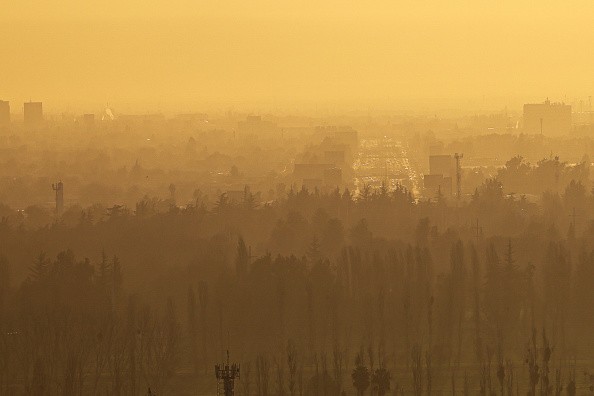Air pollution is a major environmental problem that affects the health and well-being of millions of people around the world. It can also have a negative impact on the effectiveness of antibiotics, which are vital for treating infections caused by bacteria.
Link between air pollution and antibiotic resistance

Antibiotic resistance occurs when bacteria change in response to the use of antibiotics, making them harder or impossible to kill.
This can lead to infections that are difficult to treat and can cause serious complications or death.
It is mainly driven by the misuse and overuse of antibiotics in humans and animals, but other factors may also contribute to it.
One of these factors is air pollution, which is composed of various gases and particles that are suspended in the air.
Some of these particles, such as fine particulate matter (PM2.5), can carry bacteria and resistance genes that can be transferred between different environments and organisms.
When people inhale these particles, they may be exposed to resistant bacteria or genes that can affect their own microbiome, the community of microorganisms that live in and on our bodies.
A recent study conducted by researchers from China and the UK analyzed data from more than 100 countries spanning nearly two decades.
The study found that increased air pollution levels were associated with increased antibiotic resistance across every country and continent.
It also suggested that the link between the two has strengthened over time, with increases in air pollution levels coinciding with larger rises in antibiotic resistance.
The study did not examine the causal relationship between air pollution and antibiotic resistance, but it proposed some possible mechanisms.
One mechanism is that PM2.5 may contain antibiotic-resistant bacteria and resistance genes, which may be transferred between environments and hosts through inhalation or ingestion.
Another mechanism is that PM2.5 may induce oxidative stress and inflammation in the body, which may impair the immune system and increase susceptibility to infections and resistance.
Also Read: Curbing Air Pollution Might Help Decrease The Spread Of Antibiotic-Resistant Bacteria, Study Shows
Air pollution affects the spread and survival of resistant bacteria
Consequences of air pollution and antibiotic resistance are serious and far-reaching. They can affect not only human health, but also animal health, food security, and environmental quality.
For human health, air pollution and antibiotic resistance can increase the risk of respiratory infections, such as pneumonia and tuberculosis, which are among the leading causes of death worldwide.
They can also make infections harder to treat, resulting in longer hospital stays, higher medical costs, and increased mortality.
For animal health, air pollution and antibiotic resistance can affect the productivity and welfare of livestock and aquaculture, which are important sources of food and income for many people.
They can also increase the risk of zoonotic diseases, which are diseases that can be transmitted from animals to humans, such as salmonella, E. coli, and avian influenza.
For food security, air pollution and antibiotic resistance can threaten the availability and safety of food products derived from animals or plants. They can also reduce crop yields and quality by affecting plant growth and health.
For environmental quality, air pollution and antibiotic resistance can harm biodiversity and ecosystem services by affecting soil fertility, water quality, climate regulation, and pollination.
Related Article: Antibiotic Resistance: WHO Reveals Plan to Combat its Effects
© 2024 NatureWorldNews.com All rights reserved. Do not reproduce without permission.




![Roundworms with Short Memories 'Stop Forgetting' When Frozen or Given Lithium [Study]](https://1471793142.rsc.cdn77.org/data/thumbs/full/70295/280/157/50/40/roundworms-with-short-memories-stop-forgetting-when-frozen-or-given-lithium-study.jpg)
